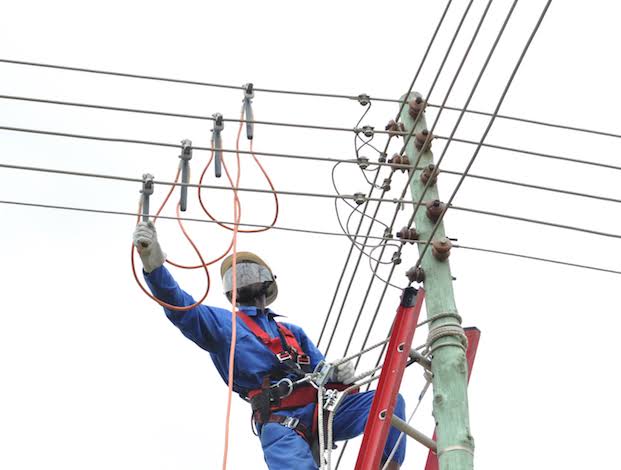The Nigerian Electricity Regulatory Commission (NERC) is disinclined to tariff changes brought into the system by the Enugu Electricity Regulatory Commission (EERC) which reduced the tariff for Band-A customers in the state.
The Federal Electricity Regulatory Agency, states that state electricity regulatory commissions are not authorised to change the wholesale cost of electricity supplied through the national grid.
In a public notice, NERC said, “As states do not have jurisdiction over the national grid and over electric power stations established under federal laws/operating under licenses issued by the Commission, they must holistically incorporate the wholesale costs of grid supply to their states without any qualification or deviation in their design of tariffs for end-use customers in order not to distort the dynamics of the market or be prepared to make a policy intervention by way of a subsidy for any deviation in the tariff structure that distorts the wholesale generation, transmission, and legacy financing costs in NESI.
READ ALSO:
650 Workers May Be Sacked As Chevron Begins Major Restructuring
‘Embargo,’ Nigeria Sets 12-Year New Minimum Age For JSS 1 Admission
‘An Eye For An Eye,’ Family of Slain Rivers Varsity Student Seeks Justice
‘After Two Decades In Coma,’ Saudi ‘Sleeping Prince’ Al-Waleed bin Khaled, Is Dead
‘In Just 10 Days,’ SunTrust Bank MD Swapped $12m For Achimugu – Witness
Outrage As Israel Strikes Only Catholic Church In Gaza, Kills Three Worshipers
“The Commission’s attention has been drawn to the increasing stakeholders’ concerns on the Tariff Order (Order No. EERC/2025/003) issued by the Enugu State Electricity Regulatory Commission to its Licensee Mainpower Electricity Distribution Limited (MEDL) that relies exclusively on electricity supply (generation and transmission) from the national grid.
“NESI stakeholders have expressed concern about the consequences of the reduction of tariffs for Band A customers in MEDL’s network area to NGN160.4 per kWh and the freezing of tariffs of customers in the other bands on the wholesale generation and transmission costs along with the financing costs for legacy obligations in NESI.
“It is pertinent to state that the NGN160.4 per kWh was arrived at largely by reducing the current average generation tariff of NGN112.60 per kWh to NGN45.75, with an assumption of a subsidy component, a difference of N66.85 per kWh.
“Section 34(1) of the EA places a statutory obligation on the Commission to “create, promote, and preserve efficient electricity industry and market structures and ensure the optimal utilisation of resources for the provision of electricity, and we are also aware that EERC, as a sub-national electricity regulator, also has a similar statutory obligation in their enabling law, and neither NERC nor EERC, as responsible regulatory institutions, would take decisions that expose the national grid and wholesale electricity market to a financial crisis in contravention of express powers granted to them by the Constitution.
“All stakeholders are advised to note that the Commission is currently engaging EERC on their tariff order as it relates to any perceived area of misinterpretation/misunderstanding on wholesale generation and transmission costs on their import of power from the national grid and grants further assurances of its unwavering statutory commitment that the electricity market will be made whole in terms of cost recovery in compliance with the laws of the Federal Republic of Nigeria.”





